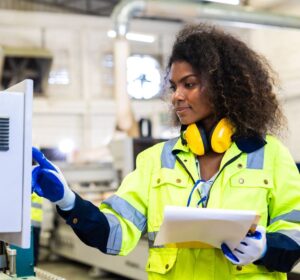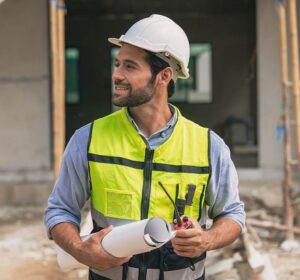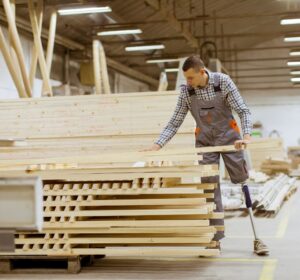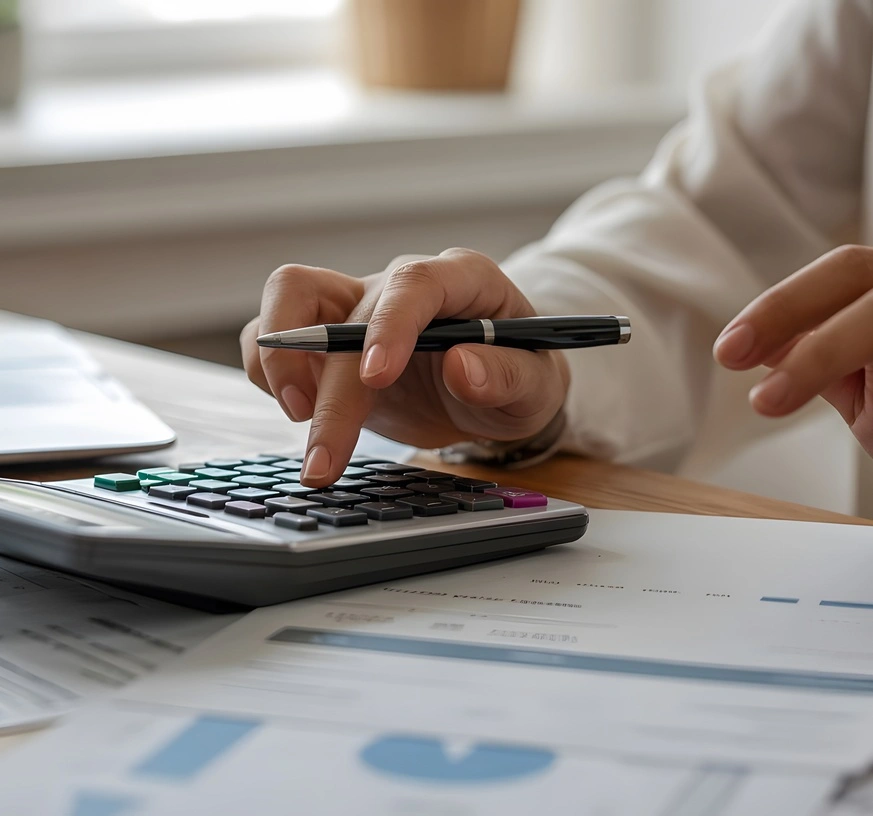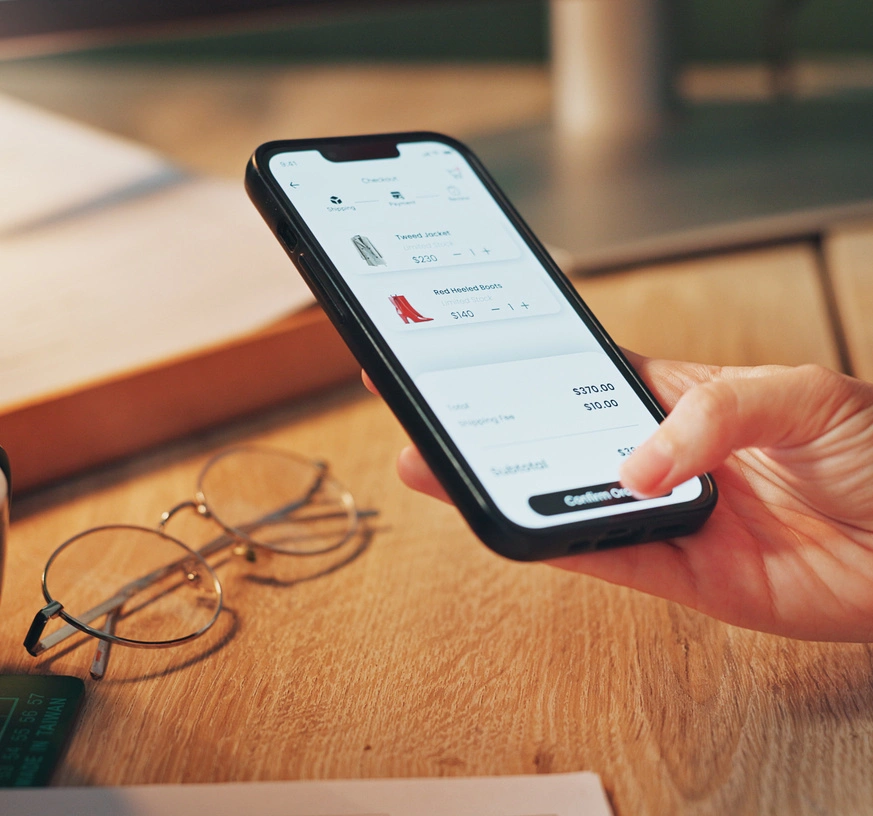For businesses looking to acquire some machinery without straining cash flow, construction equipment financing is the way to go. You can spread the cost out over time, and preserve working capital for other, more important expenses. Below we will look at the most common questions potential borrowers have, providing some clarity and guidance for the financing process.
1. What is Construction Equipment Financing and How Does it Work?
Construction equipment financing can help businesses acquire machinery by borrowing funds or leasing, rather than paying the full cost upfront. There are some differences between loans and leases:
- Loans: In a loan arrangement, the business borrows money to purchase equipment outright. After repayment, including interest, the business owns the equipment.
- Leases: Leasing involves “a contract outlining the terms under which one party agrees to rent” the equipment for a set term with the option to purchase at the end. Lease payments are typically lower than loan payments, but the business does not own the equipment unless it opts to buy it after the lease term.
Financing terms generally include a down payment, fixed monthly payments, and interest rates that vary based on the borrower’s creditworthiness and market conditions. This structured approach allows businesses to manage cash flow effectively while accessing essential equipment.
Why Should I Finance Construction Equipment Instead of Buying it Outright?
Financing construction equipment offers several benefits:
- Preserving Cash Flow: Financing helps avoid large upfront expenditures, keeping more cash available for operational expenses, emergencies, and other investments.
- Tax Advantages: Businesses can potentially “depreciate the asset” and deduct interest payments, reducing taxable income (consult a tax advisor for specific details).
- Access to Newer Equipment: Financing allows businesses to upgrade to newer, more efficient equipment more frequently, enhancing productivity and competitiveness.
- Flexible Payment Options: Financing terms can be structured to match your business’s cash flow cycles, making it easier to manage repayments. This flexibility helps maintain financial stability and ensures that you can invest in necessary equipment without financial strain.
3. What Are the Different Types of Construction Equipment Financing Available?
There are several main types of construction equipment financing:
- Equipment Loans: These loans allow businesses to borrow money to purchase equipment outright. The borrower owns the equipment after the loan is repaid, typically over a fixed term with set monthly payments and interest.
- Equipment Leases: Leasing involves renting the equipment for a specified term, with the option to purchase at the end. Lease payments are generally lower than loan payments, making it easier to manage cash flow. Leasing provides flexibility for businesses to upgrade equipment more frequently.
- Lines of Credit: A revolving credit line allows businesses to access funds as needed for multiple equipment purchases. This option lets companies borrow and repay funds on an ongoing basis, only paying interest on the amount used.
- SBA Loans: Small Business Administration (SBA) loans are government-backed and offer potentially favorable terms, such as lower interest rates and longer repayment periods. These loans are designed to support small businesses in acquiring essential equipment.
Each financing option has unique benefits and considerations, allowing businesses to choose the best fit for their needs and financial situation.
4. What Types of Construction Equipment Can Be Financed?
A wide range of construction equipment can be financed, including:
- Excavators
- Bulldozers
- Cranes
- Loaders
- Backhoes
- Forklifts
- Graders
- Skid steers
Financing is available for both new and used equipment, so businesses can get the machinery needed for various construction projects without a significant upfront cost.
5. What Are the Requirements for Getting a Construction Equipment Loan or Lease?
To qualify for a construction equipment loan or lease, businesses typically need to meet the following criteria:
- Credit Score: Both personal and business credit scores are important. Higher scores improve the chances of approval and better terms.
- Financial History: Lenders require detailed financial documents, such as profit/loss statements, tax returns, and balance sheets, to assess the financial health of the business.
- Time in Business: Established businesses with a longer operational history are more likely to secure financing. New businesses may face additional requirements or need a co-signer.
- Down Payment: A down payment, usually a percentage of the equipment cost, is often required to demonstrate commitment and reduce lender risk.
- Insurance: Proof of comprehensive insurance coverage for the equipment is typically mandatory to protect against loss or damage.
Meeting these qualifications increases the likelihood of securing favorable financing terms for construction equipment.
6. How Much Can I Borrow for Construction Equipment Financing?
The loan amount you can borrow for construction equipment financing varies based on several factors:
- Equipment Cost: The price of the equipment being financed directly impacts the loan amount.
- Creditworthiness: Borrowers with stronger credit scores may qualify for larger loans with better terms.
- Lender’s Policies: Each lender has its own limits and criteria for determining loan amounts.
- Business Financials: The business’s revenue and cash flow play a significant role in determining borrowing capacity.
Our alternative lender partners offer a range of financing amounts, typically from $10,000 to $500,000, depending on the borrower’s qualifications and needs.
7. Can I Take Advantage of Section 179 Deductions If I Finance My Construction Equipment?
Yes, you can take advantage of Section 179 deductions even if you finance your construction equipment. Section 179 of the IRS tax code allows businesses “an immediate expense deduction that business owners can take for purchases of depreciable business equipment instead of capitalizing and depreciating the asset over a period of time.” This deduction applies to both new and used equipment, providing significant tax savings.
For financed equipment, the full cost can be deducted in the year of purchase, even if the equipment is paid off over several years. For example, if you finance $100,000 worth of construction equipment, you can deduct the entire amount under Section 179, potentially reducing your taxable income significantly. Consult a tax advisor to ensure your equipment qualifies and to maximize your tax benefits.
8. How Do I Choose the Right Lender for Construction Equipment Financing?
Choosing the right lender for construction equipment financing involves considering various factors:
- Interest Rates and Terms: Shop around to compare interest rates, repayment terms, and overall costs. Look for the most competitive rates that fit your financial situation.
- Specialization: Some lenders specialize in construction equipment financing and may offer tailored solutions and better understanding of industry needs.
- Customer Service: Select a lender that provides responsive and helpful customer service. Good communication can make the financing process smoother and more efficient.
- Repayment Flexibility and Processing Fees: Consider lenders that offer flexible repayment options that align with your cash flow. Be mindful of any processing fees and ensure you understand the total cost of the loan.
By evaluating these factors, you can choose a lender that best meets your needs and supports your business goals.
9. What Are the Interest Rates and Terms for Construction Equipment Loans and Leases?
Interest rates for construction equipment loans and leases vary based on several things, like:
- Market Conditions: Economic factors such as inflation and central bank policies influence interest rates.
- Creditworthiness: Borrowers with better credit scores usually secure lower interest rates due to reduced risk for lenders.
- Loan Term: Shorter terms typically have higher interest rates but lower total interest paid over the life of the loan. Longer terms spread out payments but may result in higher overall costs.
- Type of Financing: Loans and leases may have different rate structures. Loans generally have fixed rates, while leases may offer both fixed and variable rates.
- Fixed vs. Variable Interest: Fixed interest rates remain constant throughout the loan term, while variable rates can fluctuate based on market conditions.
Typical loan terms range from 3 to 7 years, depending on the lender and the equipment’s useful life. Lease structures vary, with options for operating leases (lower monthly payments, no ownership) or capital leases (higher payments, potential ownership at the end).
10. What Happens If I Can’t Make the Payments on My Construction Equipment Financing?
Defaulting on construction equipment financing can have serious consequences:
- Repossession of Equipment: If you fail to make payments, the lender may repossess the financed equipment, disrupting your operations.
- Damaged Credit: Defaulting on a loan can significantly harm your credit score, making it difficult to secure future financing.
- Legal Action: The lender may sue for the remaining balance of the loan, leading to potential legal costs and financial strain.
To avoid these, consider potential solutions such as loan modification or refinancing. Loan modification involves negotiating new terms with your lender to make payments more manageable. Refinancing allows you to replace your current loan with a new one, potentially at a lower interest rate or with extended terms. Communicating proactively with your lender can help you find a resolution before defaulting.
About the Author
Kelly Hillock
Kelly Hillock is the content marketing manager for SmallBusinessLoans, where she writes and edits articles for small business owners. Kelly has over eight years’ experience in copywriting across a variety of industries, focusing on entrepreneurship and finance. She has a Bachelor of Arts in journalism from San Diego State University.











